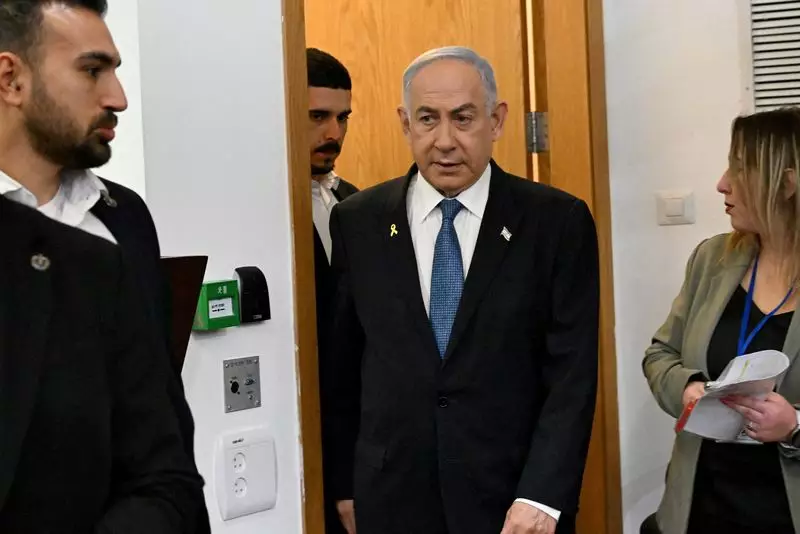In a remarkable display of resilience, Israeli Prime Minister Benjamin Netanyahu emerged from his hospital bed to attend the Knesset, underscoring the high stakes of the nation’s legislative future. Following prostate surgery, Netanyahu’s early return was not merely a personal triumph; it reflected his urgent desire to galvanize a fractious coalition amidst mounting dissent. The 2025 budget, which he heralds as pivotal for increasing state revenues, faces significant threats from within his ranks, particularly from hardline members who question the fundamentals of the government’s economic strategy.
The proposed budget, branded as a wartime austerity measure laden with tax increases and spending cuts, is essential in the wake of recent economic turmoil brought on by the conflict with Hamas since October 7, 2023. The precarious economic landscape has exacerbated inflation while stifling growth, making the approval of this budget critical for maintaining fiscal stability. However, the coalition’s internal friction—especially from figures like Public Security Minister Itamar Ben Gvir and ultra-Orthodox factions—signals deep fractures that could hinder consensus.
Ben Gvir’s assertion that the police require more funding, coupled with the ultra-Orthodox parties’ resistance to military enlistment legislation, showcases the competing interests within Netanyahu’s coalition. The recent threat from these factions to either abstain or outright oppose the budget places Netanyahu in a challenging position, compelling him to balance essential economic reforms with the demands of coalition partners. His appeal for unity highlights not only his political acumen but also reflects the growing concern regarding the coalition’s longevity.
The ramifications of failing to pass the budget are dire; if not approved by March 31, fresh elections loom, potentially destabilizing an already fragile government. Netanyahu’s coalition, which marginally dominates the Knesset with a 64-56 majority, is being tested as intra-party discord threatens to unravel the administration’s efficacy. The prime minister’s strategic decision to incorporate former opposition lawmaker Gideon Saar was aimed at enhancing his control, yet the recent unrest suggests that the coalition is still held hostage by its most hardline members.
The ongoing conflict in Gaza and the broader geopolitical landscape complicate these challenges further. The threat of escalated violence coupled with rising living costs means that the stakes are higher than ever. As Israel grapples with dual crises—security concerns and economic challenges—the government’s approach to these problems may determine its survival and future credibility.
In navigating these turbulent waters, Netanyahu’s insistence on unity among coalition partners is critical. The direction of the budget discussions in the Knesset finance committees will be the first major indicator of whether Netanyahu can maintain the precarious balance within his government. His leadership is inextricably linked to the ability of his coalition to coalesce around common goals. Ultimately, the success or failure of the 2025 budget could redefine the Israeli political landscape, shaping not only Netanyahu’s future but also the stability of the nation itself.

